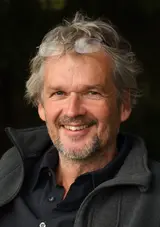The conference takes up both the knowledge-historical focus of the Gotha Research Center and the location of the royal seat: Courtly knowledge against the background of large collections, libraries and archives, with its freedom from academic constraints but also its ties to dynastic representation, its proximity to military, artistic and possibly even alchemical-laboratory know-how is a paradigmatic case for the history of knowledge. The court forms a cosmos all its own, with its own possibilities and rules, including the tactics of simulation, dissimulation, and assertion of power. Therefore, in it, as in a laboratory, the communicative setting in which different forms of knowledge interact can be observed. This can be analyzed just as well as in Gotha in Istanbul, in Delhi, in Beijing or in Cairo, possibly with quite different results in each case. Knowledge worlds existed here as well as there, and reports about the knowledge worlds of others can be found everywhere in the archives.
The conference is intended to span a wide range and include sections on both European and non-European knowledge cultures as well as on their interconnections. In particular, the following guiding questions are relevant: In what ways did knowledge "travel," "migrate," or "circulate" between different cultures? What was the active or passive role of courts in particular - when they financed travel, received diplomats, or acquired foreign-language books? Were there differences between the circulation of "small facts" and larger units such as theories, complex practices, or entire worldviews? Which carrier groups played a role? Were there differences between transmissions of material objects and that of ideas, and what did these consist of, if any? What kind of transcultural references did courts, trading cities, universities, or academies have? Did scale play a role, i.e., did small courts act differently from large ones in terms of knowledge? Did this have an effect on the transformation or non-transformation of knowledge? What adaptations, but also what forms of resistance to adaptations, can be observed in each case? Was there also a transcultural circulation of practices, bureaucratic norms, or image motifs? What role did non-knowledge, non-connectedness, isolation, and misunderstanding play in this? What were the political implications of certain knowledge transfers? And finally: How can all these different and partly diverging questions and aspects be methodologically and conceptually anchored in the profile of a Global History of Knowledge?



